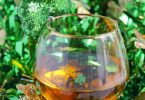What does the Breweries & Distilleries Act mean?
The Intoxicating Liquor (Breweries and Distilleries) Act 2018 came into force on 3rd September 2018.
It creates a new licence called a “producer’s retail licence” which allows breweries and distilleries to sell alcohol to visitors. The new licence is a welcome development for breweries and distilleries that currently have only a manufacturing licence as they can now apply for a licence that will allow them to sell alcohol to visitors.
Up to now, breweries and distilleries had to have a Publican’s licence to allow them sell the alcohol they manufacture to visitors, but the significant cost associated with getting a Publican’s licence was prohibitive for most breweries and distilleries.
The Act also now allows breweries and distilleries to sell alcohol to visitors who’ve completed a guided tour of the premises on Sunday mornings. Up to now, restrictions in the existing laws meant that breweries and distilleries could not sell alcohol to visitors before 12.30pm on Sundays.
While the Act is to be welcomed by the country’s brewery and distillery visitor centres, breweries and distilleries that already have a licence to sell alcohol should consider carefully whether or not they will in fact be worse off if they apply for the new licence.
How does this affect publicans and off-licences?
It could be said that the creation of this new retail licence has the potential to unfairly discriminate against existing traders who had to bear the cost of buying a licence at around €60,000.
However, this new retail licence is exceptionally restrictive and only authorises:
- the sale of products manufactured on the premises
- trading during extremely restrictive trading hours
- on-sales only to visitors who have completed a tour
Nor does it authorise late licences.
What is a producer’s retail licence?
The Act allows breweries and distilleries that already have a “relevant licence” to apply for a producer’s retail licence.
A relevant licence under that Act is any of the following:
– a brewer of beer for sale licence
-a distiller of spirits licence
– a maker of cider or perry for sale licence
– a maker for sale of sweets licence, or
– a rectifier or compounder of spirits licence.
A brewery or distillery that wants to sell alcohol that can be consumed on or off the premises must apply to the Circuit Court for a certificate entitling it to the licence. A brewery or distillery that wants to sell alcohol that can be consumed off the premises only (ie off-sales), must apply to the District Court for the certificate.
What do producers need to do to get the licence?
At the hearing of the court application, the brewer or distiller must be able to show that:
- they already have one of the relevant licences referred to above for the premises and
- there is an appropriate mechanism in place to restrict the sale of alcohol that will be consumed on the premises to visitors who’ve completed a guided tour of the premises.
Once the court issues a certificate, it must be lodged with the Revenue Commissioners who will then issue a producer’s retail on-licence or a producer’s retail off-licence as appropriate. The excise duty for the grant or renewal of the licence is €500 and the applicant must also be able to show tax-compliance.
What can be sold, to whom and when?
What can be sold?
Only alcohol manufactured in the brewery or distillery can be sold under the new licence.
If the certificate for the producer’s retail licence is granted by the Circuit Court, alcohol manufactured at the brewery or distillery can be sold for consumption on or off the premises. Where the certificate is granted by the District Court, alcohol manufactured at the brewery or distillery can only be sold for consumption off the premises.
To whom can alcohol be sold?
Alcohol manufactured at the brewery or distillery can be sold to:
- anyone who has completed “a guided tour of the premises” for consumption on or off the premises and
- anybody else for consumption off the premises only.
- Anyone who has completed a guided tour of the premises
A guided tour is defined in the Act as a tour of the premises that:
- includes an explanation of, or information relating to, the process whereby the alcohol is manufactured on the premises
- is carried out in person, whether the tour is guided by another person or not and
- requires a ticket to be issued to the person taking the tour, whether a fee is paid for the ticket or not.
Under the Act, breweries and distilleries cannot sell alcohol for consumption on the premises to visitors who do not take part in an organised tour. The tour must be a guided tour for which a ticket has been issued. The Act allows for pre-recorded audio tours or self-guided tours as long as information about the manufacturing process is given.
- Anybody else for consumption off the premises only
Alcohol manufactured on the premises can also be sold to visitors who do not take a guided tour of the brewery or distillery but that alcohol cannot be consumed on the premises. This applies regardless of whether or not the court certificate was issued by the Circuit Court or the District Court.
When can alcohol be sold?
Alcohol manufactured at the brewery or distillery can be sold to visitors who have completed a guided tour during the following hours:
| Monday to Saturday | Sunday | Christmas Day |
| 10:00am – 7:00pm | 10.00am – 7:00pm | No sales permitted |
Alcohol manufactured at the brewery or distillery can be sold to anyone who has not completed a guided tour during the following hours:
| Monday to Saturday | Sunday (that is not Christmas Day) | Christmas Day | St Patrick’s Day |
| 10:00am – 7:00pm | 12.30am to 7:00pm | No sales permitted | 12:30pm to 7:00pm |
The additional hours on a Sunday morning will be welcomed by breweries and distilleries. Up to now visitors to breweries and distilleries couldn’t buy the alcohol that they’d seen manufactured if they visited the brewery or distillery before 12.30pm on a Sunday.
Penalties
The penalty for breaching the conditions of the licence is a fine of €5,000.
But the provisions of Part III of the Intoxicating Liquor Act 1927 do not apply to a producer’s retail licence so the licence cannot be endorsed. This means that the provisions that can result in a licence being forfeited where there are three current convictions on the licence do not apply to a producer’s retail licence.
A sting in the tail?
The new Act provides that once a producer’s retail licence is issued to a brewery or distillery, any other licence attached to the premises (aside from a “relevant licence”) will be extinguished.
This means that if a brewery or distillery already has another licence for the premises, that licence will be extinguished when the producer’s retail licence is granted.
It is important to remember that a producer’s retail licence only allows for the sale of alcohol manufactured on the premises. A brewery or distillery that already has another licence allowing it to sell other types of alcohol would no longer be able to sell this alcohol if the producer’s retail licence is granted for the same premises.
Brewers and distillers should think carefully about how they can potentially avoid this. For example can a new premises or area be created in or near to the manufacturing premises? If so, it might be possible to apply for a producer’s retail licence without affecting other licences.
It’s important to seek legal advice on all the various options before going ahead with an application for a producer’s retail licence. While the additional hours are to be welcomed by breweries and distilleries, they may find that the result of getting the new licence is that they are limiting the type of alcohol they can sell.








